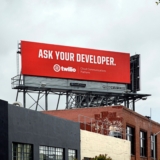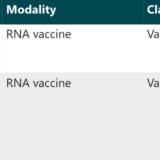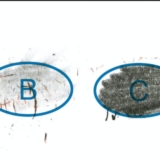The rise of developers — as buyers, as influencers, as a creative class — is a direct result of “software eating the world”, and of key ...
All about section 230 of the Communications Decency Act — in what Wired senior writer (and host of the Get Wired podcast) described as “one of the ...
If software’s eating the world — and more specifically, bringing costs down and increasing productivity through entire industries — why have some ...
“In a year that left us speechless, 2020 has been filled with new words unlike any other”… so it’s unprecedented that for the first time, the ...
In this special episode of Bio Eats World — which aired right after the FDA authorized Moderna’s mRNA vaccine for emergency use — Moderna CEO ...
This episode features two relevant but previously recorded episodes, discussing the relevance of the Paycheck Protection Program (or PPP) from the Small ...
The intersection of social and finance—as well as shifting attitudes around what we share about money online—have given way to an ambitious new wave of ...
There’s a few ontologies for describing the phases leaders — and their startups — go through, whether it’s product-sales-etc. or ...
What happens if we treat food as a medicine in the healthcare system: How, where, and who (pays)? What role can technology play in increasing access, ...
This episode features Q&As with two artists who are exploring crypto-powered auction sites and marketplaces – this is part of our ongoing series on the ...
A vaccine for COVID seems to be (almost) here… or is it? What’s hype/ what’s real beyond the headlines (and beyond the press release), when it comes to the ...
True cloud-native games—those exclusive to and solely playable within the cloud—are poised to revolutionize gameplay and unlock new avenues of ...
Lakes v. warehouses, analytics v. AI/ML, SQL v. everything else… As the technical capabilities of data lakes and data warehouses converge, are the ...
How to moderate good, productive discussions and navigate tricky conversations is top of mind — whether doing a panel, conducting a live event, ...
“The most profound technologies are those that disappear. They weave themselves into the fabric of everyday life until they’re indistinguishable ...
Data, data, data – it’s long been a buzzword in the industry, whether big data, streaming data, data analytics, data science, even AI & machine learning — ...
Gen Z—those born between 1995 and 2010—now makes up 35 percent of the population and represent $143 billion dollars in spending power. This episode is all ...
We’ve already talked a lot about podcasting, both evolution of the industry as well as the form, but where are we going with the future of audio, more ...
Today’s episode is a conversation about four big trends in the tech world. Any one of these trends would be notable on its own, but we cover all four in this ...
It seems like investors are especially obsessed with the psychology of decision making — high stakes, after all — but all kinds of decisions, ...
- « Previous Page
- 1
- …
- 19
- 20
- 21
- 22
- 23
- …
- 30
- Next Page »













